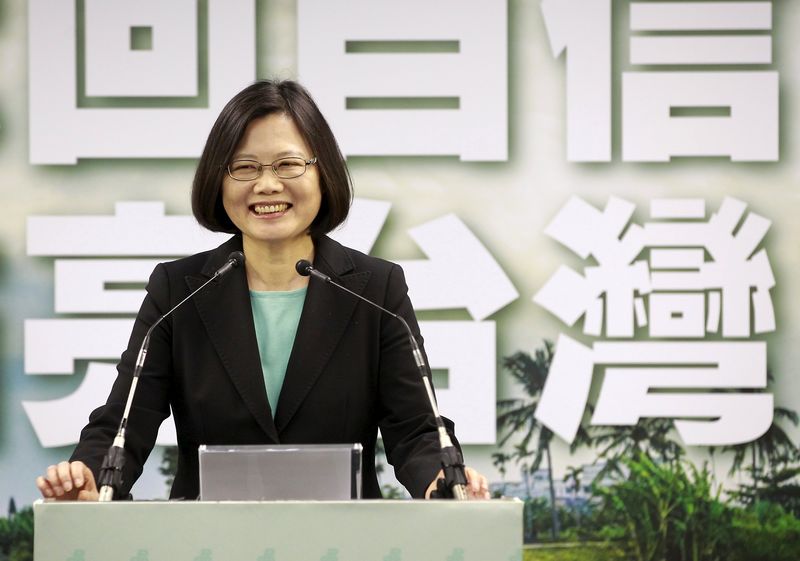Investing.com’s stocks of the week
TAIPEI (Reuters) - The leader of Taiwan's main pro-independence opposition party will begin a 12-day visit to the United States this month, a trip seen as important to her bid for Taiwan's presidency and in reinforcing ties with the island's strongest ally.
Tsai Ing-wen, chairwoman of the Democratic Progressive Party and a contender in the January election, will meet government officials, academics and overseas Taiwanese on the May 29-June 9 trip, the party said in a statement on Friday.
The visit of Tsai, a former trade negotiator who was part educated in the U.S. and is fluent in English, will be widely watched as the U.S. is Taiwan's biggest ally and provider of weapons, though the two do not have formal diplomatic ties.
"If they bless her as a serious, potential leader of Taiwan and think she has a perspective on China that is realistic and pragmatic, it will make it harder for China to be so dismissive of her," said William Stanton, director of the Centre for Asia Policy at Taiwan's National Tsing Hua University and a former U.S. diplomat.
China regards Taiwan as a renegade province, to be put under Beijing's control by force if necessary, particularly if Taiwan pursues independence.
China last month warned the DPP to heed the lessons of the last time it was in power and not push for independence, on the same day as the party announced Tsai as its presidential candidate.
The DPP's Chen Shui-bian infuriated Beijing and strained Taiwan's relationship with the U.S. during his time as president from 2000 to 2008. China accused him of trying to push for independence and weaken the island's Chinese cultural heritage.
The DPP has a strong chance to retake power after routing the ruling Nationalist Party in local elections last November.
Since 2008 under President Ma Ying-jeou, cross-strait business ties have flourished, though there has been no talk on the island's political future.
Progress in relations stalled after hundreds of students occupied Taiwan's parliament in protest early last year over a trade deal with China. Tsai has said she favors "maintaining the status quo" when asked about her China policy.
"The accumulated work by everyone on cross-strait interaction over the past 20 years should not be destroyed because of competition between political parties or because of the election," Tsai said.
Tsai ran, and lost, in 2012. If elected this time, she would be the first female president in Taiwan's history.
